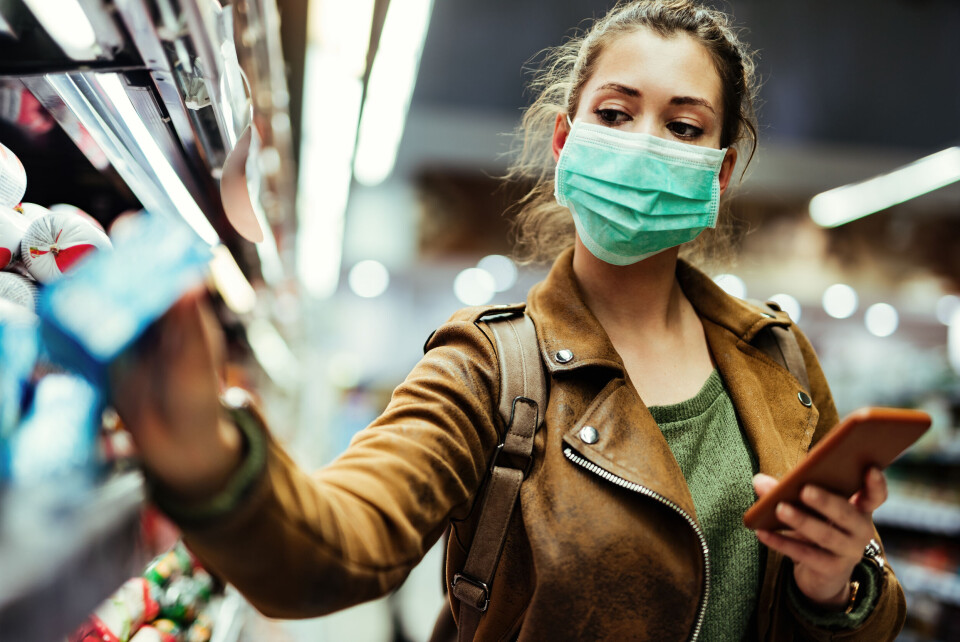-
Britons are the largest foreign community of second-home owners in Nouvelle Aquitaine
See which other departments in the region are popular with British nationals
-
Travellers risk extra costs under new Eurotunnel ticket rule
Some fare options are less flexible and less forgiving of lateness
-
May will be difficult month for train travel in France, warns minister
Two major train unions are threatening to strike and are ‘not willing to negotiate’, he says
Covid vaccines, isolation, tests: What restrictions remain in France?
As France lifts the obligation to wear a mask on public transport, we summarise the rules that remain and ask if mask-wearing could return

Wearing a mask will no longer be mandatory on public transport or planes in France from this Monday (May 16), making it one of the last restrictions to be lifted. But what rules are still in place? We summarise.
Yesterday, Health Minister Olivier Véran confirmed the end of the mask on public transport rule (buses, metro, trains), and the European Aviation Safety Agency (EASA) announced the end of the mandatory requirement on planes and airports in the EU.
Read more: Mask requirement on public transport in France to end on May 16
Patrick Ky, executive director of EASA, said: “Passengers must still behave in a responsible manner and respect others’ choices. A passenger who is sneezing and coughing should strongly consider wearing a mask, if only to reassure those sitting next to them.”
Masks have not been required indoors in most public places in France since March 14, but some restrictions do still remain in the country.
Isolation for people who test positive
Isolation for at least one week after a positive case or the appearance of symptoms. People who test positive on an antigen or lateral flow test must also confirm the result with a PCR test.
Mask and health pass in health establishments
Masks are still required in hospitals, pharmacies, and medical labs. A health pass (not the vaccination pass) is also needed in health establishments.
It may also be asked for at borders during travel from or into France.
Mandatory vaccination for health professionals
Staff in health establishments and medical-social establishments must be up to date with their vaccinations, including boosters, before being permitted to work. Those who refuse to be vaccinated or who are not up to date risk suspension without pay. This has been the case since September 2021.
However, recently President Macron has talked about potentially reinstating non fully vaccinated health professionals.
Masks required for planes travelling to destinations that require them
Masks are still mandatory on planes in France if they are travelling to destinations that still require passengers to wear masks. Airlines also still retain the right to make masks mandatory if they choose.
‘Covid is not over’
Health professionals appear somewhat divided over the decision to make masks optional.
Professor Yves Buisson, epidemiologist and president of the Covid-19 taskforce at the Académie nationale de médecine, told BFMTV: “It’s good news as it means we are seeing a better Covid-19 situation.
“But even though masks will no longer be mandatory on public transport, they will still be recommended, especially for older people and those at risk. The epidemic is still killing people every day. It is not over. At-risk people should still continue to protect themselves.”
Meanwhile, Dr Mircea Sofonea, lecturer in epidemiology and evolution of infectious diseases at the University of Montpellier, said: “Public transport refers to a variety of contexts. There is not a solution that will work for everyone. In some cases, wearing a mask can seem excessive, but in other cases, it still works.
“Wearing it at a bus stop is not as useful as doing so in a carriage full of sports fans, or in a packed metro carriage that you know you’ll be in for a while.”
New wave?
Dr Sofonea added that the situation in South Africa, which has detected a new variant and entered a new wave, could bring a new wave to France and Europe.
Read more: France getting over fifth Covid wave, calls for caution remain
He said: “We know very well that in autumn, or before, there may be a rebound in the epidemic and therefore it is possible that we will have to return to wearing a mask. Will lifting the restrictions now make that inevitable?”
On the subject of a new wave, Mr Véran told BFMTV: “The strategy we’ve used for months is that we bring in ‘braking’ measures when needed and necessary, when cases are rising, when there is a wave ongoing; and we gradually remove the measures when cases drop.”
He added that this means that masks could once again become mandatory in future.
He said: “I don’t want that to happen, but if I listen to French and international specialists, they tell us that other variants will appear.”
However, he said that because of the level of vaccination coverage in France, and the fact that the new variants will likely be related to the Omicron strain, the country’s collective immunity will likely be strong.
Who can currently get a fourth dose of vaccine in France?
France has so far opened fourth doses to the over-60s, immunosuppressed patients and care home residents.
At present, it seems unlikely that a vaccine pass or a similar system will be reintroduced in France.
Read more: Why France is hesitating over fourth Covid vaccine dose
Related articles
Covid France: Numbers holding but experts say mid-May opening too soon
Coronavirus: Daily updates on the situation in France
Covid cases falling in France but professor says ‘pandemic not over’
























